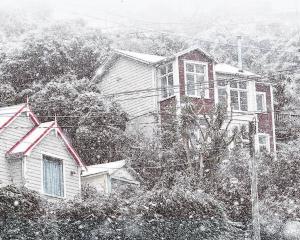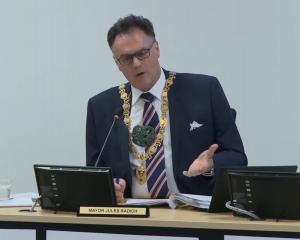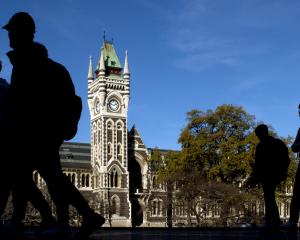Saturday's initial call has prompted letters to the editor full of support and praise for the push, a proposal to form a new political party with a southern voice, and a summit meeting which is being organised by Dunedin Mayor Dave Cull, who is encouraging business, local government, agricultural and tertiary education leaders to attend.
The newspaper's call came in the wake of Crown Research Institute AgResearch's proposal to axe 85 jobs from Invermay and shift them to Lincoln or Palmerston North.
That was preceded by news New Zealand Post will close its Dunedin mail centre with the loss of about 70 jobs, which followed state-owned enterprise KiwiRail's closure of the Hillside Engineering Workshops with a loss of about 100 jobs and the plan to centralise Southern District Health Board hospital meals to Christchurch by Crown-owned health entity Health Benefits Ltd.
The steps outlined above have led to the feeling among many that Central Government holds the city, province, and the South in disdain.
The region has of course also endured hundreds of other recent job losses, including at Dunedin City Council-owned subsidiary Delta, Summit Wool Spinners in Oamaru, Alliance's Mataura meatworks, the Tiwai Point aluminium smelter in Bluff, and the likes of Fisher and Paykel further back.
The problem is not confined to the South.
West Coast communities are facing similar issues with hundreds of Solid Energy mining job losses, and Holcim's recent announcement it will close its Westport cement plant. Other regional centres have similar tales of woe.
There is no doubt we are living in tough times, and the fallout from the global financial crisis continues to be felt as some businesses strive to remain viable.
But there is a real feeling among many - this newspaper included - that the Government's focus on centralisation is having a crippling effect on the regions.
Job losses will slowly but surely erode smaller communities as redundant workers move to Auckland with their families in search of jobs and exacerbate the employment, housing, and transport issues there.
More New Zealanders will end up footing some of the cost for its infrastructure. While it is understandable and proper that Auckland, as our largest city, needs investment - and that the Christchurch rebuild is vital to re-establish our second-largest city - such investment at the increasing cost of regional development is economically short-sighted.
A vibrant rural economy is the backbone of New Zealand, and such operations are supported often by small communities nearby.
As the lessons from the Christchurch quakes - not to mention any investment adviser - tell us, putting all our eggs in one basket carries greater risk.
Not everything can and should be done from a big city or one city alone. Back-up options are critical. One size does not fit all.
Some decisions also seem plain unfair.
Why should the Government fork out hundreds of millions for a new convention centre for Christchurch, but not Queenstown?
Substantial help for a new covered stadium for Christchurch but only a small contribution to Dunedin's?
The issue is a heated one and it is important to strike while the iron is hot. Noise and agitation around the issue is important, but there is a real need for that to translate into meaningful action, a clear strategic plan that identifies what needs to be done to stop further erosion of jobs and services, how that can be done, and by whom.
Next week's summit is a place to start, but it is only a start.
There must be some concrete decisions made about the way to progress our message and to create - both through local and national support - an environment which encourages businesses to set up, families to move to the provinces, and school and tertiary leavers to remain to use their skills.
Local councils and tourism and marketing organisations have a vital role to play in enabling opportunities and to pressure Central Government.
And MPs need to listen and act on behalf of all their constituents. We can't let the call to Stand up, Otago be full of sound and fury, signifying nothing.












